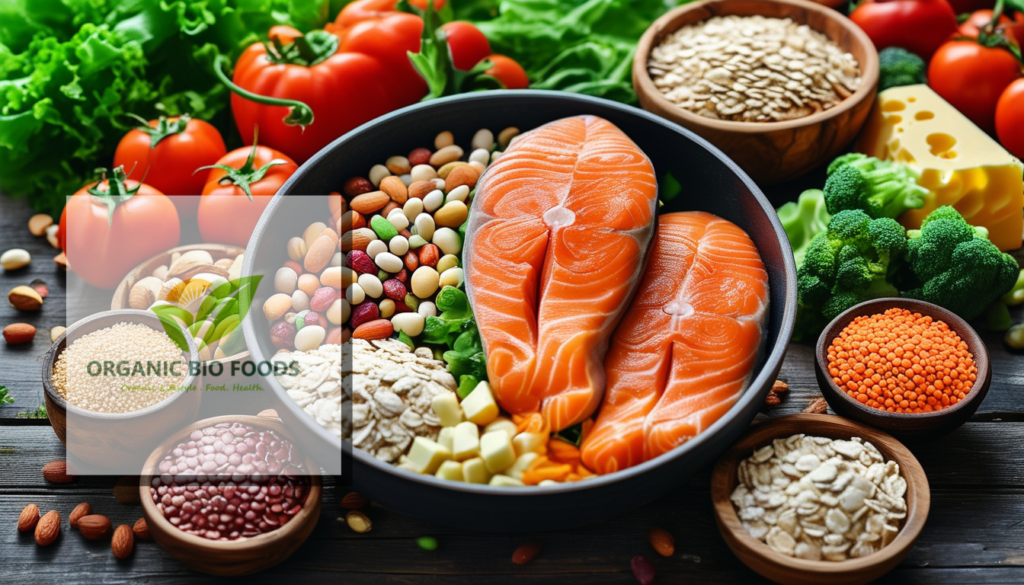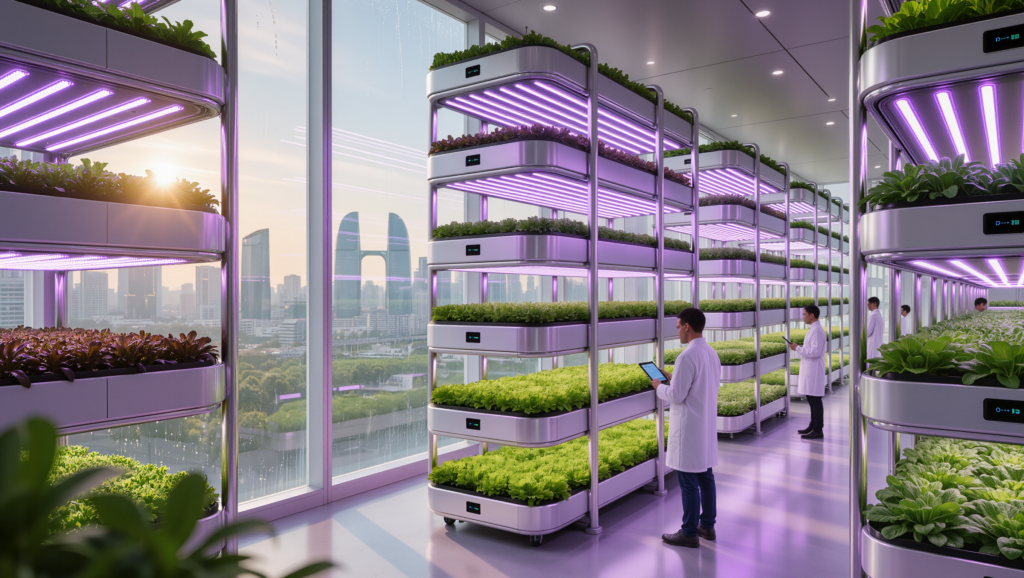What Is a High-Protein Diet?
A high-protein diet involves eating more protein-rich foods, such as meat, fish, eggs, beans, and nuts, while reducing the intake of carbohydrates and fats. Protein is one of the three macronutrients that our bodies need to function. It helps build muscles, repair tissues, and is essential for overall health. Generally, a high-protein diet suggests that around 20-30% of your daily calorie intake should come from protein .
Now, let’s look at the key benefits of a high-protein diet:
1. Weight Loss: Curb Hunger and Boost Metabolism
One of the biggest advantages of a high-protein diet is its ability to help with weight loss. Protein helps you feel full for longer, reducing your overall calorie intake. This is because protein increases the production of satiety hormones like peptide YY and reduces levels of the hunger hormone ghrelin . Feeling full means you’re less likely to snack on unhealthy foods, which can help you control your weight better.
Moreover, protein has a higher thermic effect compared to carbohydrates and fats, meaning your body burns more calories digesting and metabolizing protein . This boosts your metabolism, helping you burn more calories even when you’re at rest.
A study showed that individuals on a high-protein diet lost significantly more weight and body fat compared to those on a low-protein diet . So, if weight loss is your goal, increasing your protein intake could be a smart move.
2. Muscle Gain: Build and Repair Muscles
Protein is vital for muscle growth and repair, making it a must for anyone looking to gain muscle. When you exercise, especially during strength training, your muscles experience tiny tears. Protein helps repair these tears and promotes muscle growth, which leads to stronger and bigger muscles .
Research shows that individuals who consume a higher amount of protein while engaging in resistance training experience greater muscle gains than those who don’t . Additionally, having protein after a workout aids in faster recovery and prevents muscle loss.
Popular sources of high-quality protein include lean meats like chicken, turkey, fish, eggs, and plant-based options like tofu, lentils, and chickpeas. By incorporating these foods into your daily meals, you can maximize muscle growth and support your fitness goals.
3. Better Bone Health
Contrary to old myths suggesting that high-protein diets might harm your bones, modern research shows the opposite. Protein is essential for maintaining strong bones, especially as you age . It works together with calcium to keep bones healthy and prevent osteoporosis, a condition where bones become weak and brittle.
A study published in Osteoporosis International found that individuals who consumed more protein had higher bone mass and a lower risk of fractures . So, a high-protein diet can be an excellent way to support bone health, particularly for older adults.
4. Improved Metabolism and Fat Burning
As mentioned earlier, a high-protein diet helps increase your metabolism. Protein takes more energy to digest compared to carbohydrates or fats, which leads to higher calorie expenditure even while you rest. This process, known as the thermic effect of food (TEF), helps your body burn more fat and calories over time .
Additionally, combining a high-protein diet with regular exercise can result in more effective fat burning. For example, a study found that individuals who combined high-protein diets with resistance training experienced better fat loss compared to those who focused on a high-carbohydrate diet .
5. Better Maintenance of Lean Muscle Mass
Losing weight often leads to a loss of muscle mass along with fat. However, a high-protein diet helps preserve lean muscle while losing fat, making it easier to maintain a healthy body composition . This is especially important as we age because muscle mass tends to decrease with age, a condition known as sarcopenia.
Maintaining lean muscle is not only vital for a toned appearance, but it also supports better metabolism. Muscle burns more calories than fat, even when you’re at rest, which means the more muscle you have, the easier it is to maintain a healthy weight .
6. Better Heart Health
A high-protein diet may also benefit your heart. Studies have shown that increasing your intake of protein, especially from plant-based sources like beans, nuts, and seeds, can help lower blood pressure and reduce the risk of heart disease . This is because plant-based proteins are typically lower in unhealthy fats and cholesterol.
For example, replacing animal-based proteins like red meat with plant-based alternatives like lentils and quinoa can improve cholesterol levels, lowering your risk of heart disease .
7. Enhanced Recovery from Injuries
Protein plays a key role in the recovery process, whether you’re healing from an injury, illness, or surgery. The amino acids in protein help repair damaged tissues and accelerate healing . This is why people recovering from surgery or injury are often encouraged to consume more protein to support faster recovery.
Foods to Include in a High-Protein Diet
When aiming for a high-protein diet, it’s essential to choose a variety of protein-rich foods. Here are some excellent sources of protein to incorporate into your meals:
- Lean Meats (chicken, turkey, beef)
- Fish (salmon, tuna, mackerel)
- Eggs
- Legumes (lentils, beans, chickpeas)
- Nuts and Seeds (almonds, chia seeds, flaxseeds)
- Dairy Products (Greek yogurt, cheese, milk)
- Plant-Based Alternatives (tofu, tempeh, quinoa)
Conclusion
A high-protein diet offers numerous health benefits, from weight loss and muscle gain to improved metabolism and heart health. Whether you’re looking to shed a few pounds, build lean muscle, or simply stay fit, increasing your protein intake can make a significant difference. Remember to balance your protein intake with other essential nutrients, such as healthy fats and carbohydrates, to ensure you maintain a well-rounded
Sources:








